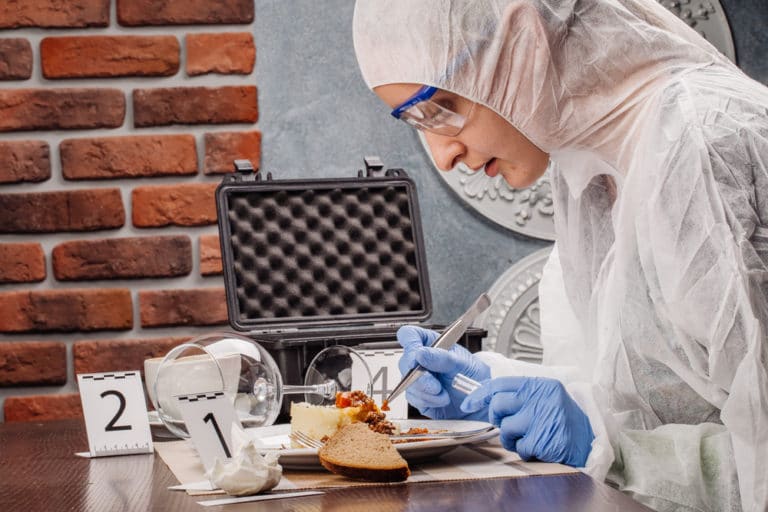What Degree Do You Need To Be An Investigator
Imagine a dimly lit room, a scattering of photographs on a table, and a focused individual meticulously piecing together fragments of information. This isn't just a scene from a crime drama; it's a glimpse into the world of an investigator. But what paves the path to this intriguing profession? What kind of education equips someone to uncover hidden truths and solve complex puzzles?
The question of what degree you need to become an investigator doesn't have a single, straightforward answer. While a specific degree isn't always mandatory, certain fields of study significantly enhance your prospects. A combination of education, experience, and specialized skills is generally the key to success in this field.
The Foundation: Degrees That Open Doors
Several academic paths can lay a solid foundation for a career as an investigator. Criminal Justice is arguably the most direct route, providing a broad understanding of the legal system, criminal behavior, and investigative techniques.
According to the Bureau of Labor Statistics, a degree in criminal justice can be particularly advantageous for those seeking roles in law enforcement and related investigative fields. Another valuable option is a degree in Forensic Science.
This field focuses on the application of scientific principles to criminal investigations. Students learn about evidence collection, analysis, and interpretation, skills crucial for any aspiring investigator.
Beyond these, degrees in fields like Psychology or Sociology can also prove beneficial. Understanding human behavior and societal patterns is invaluable when analyzing motives, interviewing witnesses, and developing investigative strategies.
Beyond the Bachelor's: Specialized Knowledge and Skills
While a bachelor's degree can open doors, further education or specialized certifications can significantly boost your career trajectory. For example, some investigators pursue master's degrees in Criminal Justice or related fields to specialize in areas like fraud investigation or cybercrime.
Certifications, such as the Certified Fraud Examiner (CFE), demonstrate a commitment to professional standards and expertise in a specific area of investigation. These certifications often require a combination of education, experience, and passing a rigorous examination.
Skills acquired through practical experience are often as important as formal education. Many investigators begin their careers in law enforcement or related fields, gaining hands-on experience in investigation techniques, interviewing, and evidence handling.
The Significance of Experience
Experience is really important in the field of investigation. Prior roles in law enforcement, the military, or even corporate security can provide invaluable training and exposure to real-world investigative scenarios.
This practical experience complements academic knowledge, allowing investigators to apply theoretical concepts to real-world situations. It also provides opportunities to develop crucial skills such as critical thinking, problem-solving, and communication.
Developing sharp observation skills is equally important. According to Dr. Emily Carter, a professor of criminology, “The ability to notice subtle details and inconsistencies is often what separates a good investigator from a great one.”
Furthermore, strong communication skills are essential for interviewing witnesses, writing reports, and presenting findings to clients or in court. An investigator must be able to articulate their findings clearly and persuasively.
Ethical conduct and integrity are of paramount importance for all investigators. Trustworthiness is the bedrock of the profession, as investigators are often entrusted with sensitive information and the responsibility of upholding justice. Maintaining confidentiality, avoiding conflicts of interest, and adhering to legal and ethical guidelines are non-negotiable aspects of the job.
A Career of Constant Learning
The field of investigation is constantly evolving, driven by technological advancements and changes in criminal behavior. Therefore, continuous learning is crucial for staying ahead of the curve.
Investigators need to be proficient in using technology for data analysis, surveillance, and digital forensics. They must also stay abreast of new laws, regulations, and investigative techniques.
Attending conferences, participating in professional development workshops, and pursuing ongoing education are all ways to ensure that investigators remain current in their field.
Becoming an investigator is a journey that blends academic preparation, practical experience, and a commitment to continuous learning. While a specific degree isn't always required, choosing a relevant field of study and gaining hands-on experience can pave the way for a rewarding and impactful career. The path to becoming an investigator is not always easy, but it's a career that offers intellectual stimulation, a sense of purpose, and the opportunity to make a real difference in the world.






:max_bytes(150000):strip_icc()/detective-and-criminal-investigator-job-information-974467-final-81e5ff0a6dca4359813897f3833c8fdc.png)
